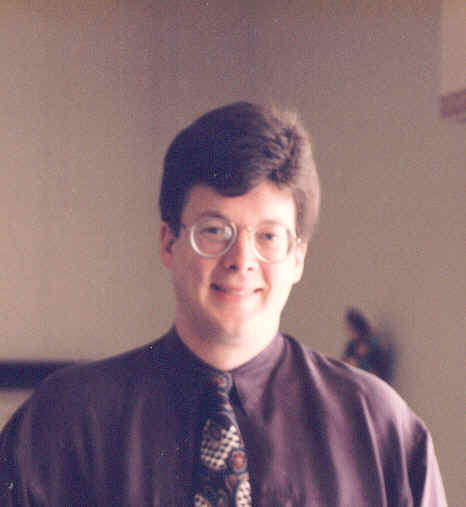The HyperTexts
"Davenport Tomorrow"
a poem
by Michael R. Burch
Poem, Form, Theme, Analysis and Meaning

This poem is set in an unspecified future (i.e., "tomorrow"). I chose the name
"Davenport" for my location because when I wrote the poem at age 18 in 1976, the
once-tiny town of Davenport, Iowa had grown from a population of around 10K in
the mid-1800s to around 100K. Thus Davenport seemed representative of small
towns that were becoming cities.
The poem has two companion poems that were written at the same time: "Stryx" and
"The Song of the Wanderers." All three poems have the same main theme: man's
destruction of planet earth. In "Davenport Tomorrow" we see an earth that is
increasingly inhospitable to life due to global warming and pollution. In "Stryx"
a human observer describes the final stage of Earth becoming completely
uninhabitable, from a distant outpost in space. In "The Song of the Wanderers"
human beings have forgotten their origins and are searching the universe for the
planet that gave their species birth. When they find Earth, it seems so alien to
them that they cross it off their list. "Stryx" was published in Homespun
in 1977, when I was a college sophomore.
Davenport Tomorrow
by Michael R. Burch
Davenport tomorrow ...
all the trees stand stark-naked in the sun.
[In this poem Davenport has become "a city of millions." The explosion of
earth's human population has been accompanied by pollution and global warming;
therefore, many forms of life have either mutated or become extinct. Thus the
trees no longer have leaves.]
Now it is always summer
and the bees buzz in cesspools,
adapted to a new life.
[Global warming has created an eternal summer and caused bees to mutate. Rampant
pollution has created lakes and ponds that are open cesspools, and the mutated
bees forage there rather than among flowers, which no longer exist.]
There are no flowers,
but the weeds, being hardier,
have survived.
[The hardiest weeds have mutated and survived. The flowers have not been so
lucky.]
The small town has become
a city of millions;
there is no longer a sea,
only a huge sewer,
but the children don't mind.
[So much ice has melted that Davenport is now a port connected to a single
global sea. But the sea is more like a gigantic open sewer. The children don't
mind because they have never known anything else.]
They still study
rocks and stars,
but biology is a forgotten science ...
after all, what is life?
[The children are studying rocks and stars in preparation for an exodus to some
other planet, since Earth cannot support life much longer. The focus of
education is not on saving and improving life on earth, but on getting the hell
away before it's too late.]
Davenport tomorrow ...
all the children murmur through vein-streaked gills
whispered wonders of long-ago.
[With the world awash in polluted water, the children have mutated and grown
gills that allow them to breathe while swimming in the sludge. The "whispered
wonders of long-ago" are fairytales of a world that was like a Garden of Eden,
with mythical creatures called "dogs" and "horses" and "lions" and "tigers" that
no one really believes in anymore. To these children a "dog" is every bit as
mythical as a "unicorn" or "dragon."]
Form, Theme, Analysis and Meaning: "Davenport Tommorow" is a free verse
poem about the dangers of human overpopulation, pollution and global warming. At
the time I wrote the first version of the poem in 1976, I had the first two
dangers in mind. We didn't hear warnings about global warming in those days, or
at least not that I can remember. The idea of a single global sea that resembled
a huge open sewer came later. But it is interesting that the original poem had
the children with "vein-streaked gills." Perhaps I was thinking of the children
swimming in the cesspool-like lakes and ponds in 1976. In any case, the main
theme of the poem has always been the danger of humans overpopulating the planet
and polluting it to the point that many forms of life either mutate or become
extinct. What mutations might our children require, in order to survive?
Bio:
Michael R. Burch is an American poet who lives in Nashville, Tennessee with his
wife Beth, their son Jeremy, and three outrageously spoiled puppies. His poems, epigrams, translations, essays, articles,
reviews, short stories and letters have appeared
more than 5,000 times in publications which include TIME, USA Today, The Hindu,
BBC Radio 3, CNN.com, Daily Kos, The Washington Post, Light Quarterly, The Lyric, Measure, Writer's Digest—The Year's Best Writing,
The Best of the Eclectic Muse, Unlikely Stories and
hundreds of other literary journals, websites and blogs. Mike Burch is also the
founder and editor-in-chief of The HyperTexts, a former columnist for the Nashville City Paper and, according to Google, a relevant online publisher of poems about the Holocaust,
Hiroshima, the Trail of Tears, Darfur, Haiti, Gaza
and the Palestinian Nakba. He has two published books,
Violets for Beth (White
Violet Press, 2012) and
O, Terrible Angel (Ancient Cypress Press, 2013).
A third book, Auschwitz Rose, is still in the chute but long delayed.
Burch's poetry has been translated into eleven languages and set to music by the
composers Mark Buller, Alexander Comitas and Seth M. Smith. One of his poems, "First They
Came for the Muslims," has been adopted by Amnesty International for its
Words That Burn anthology, a free online resource for
students and educators. He has also served as editor of International
Poetry and Translations for the literary journal Better
Than Starbucks.
For an expanded bio, circum vitae and career timeline of the
poet, please click
here:
Michael R.
Burch Expanded Bio.
The HyperTexts
